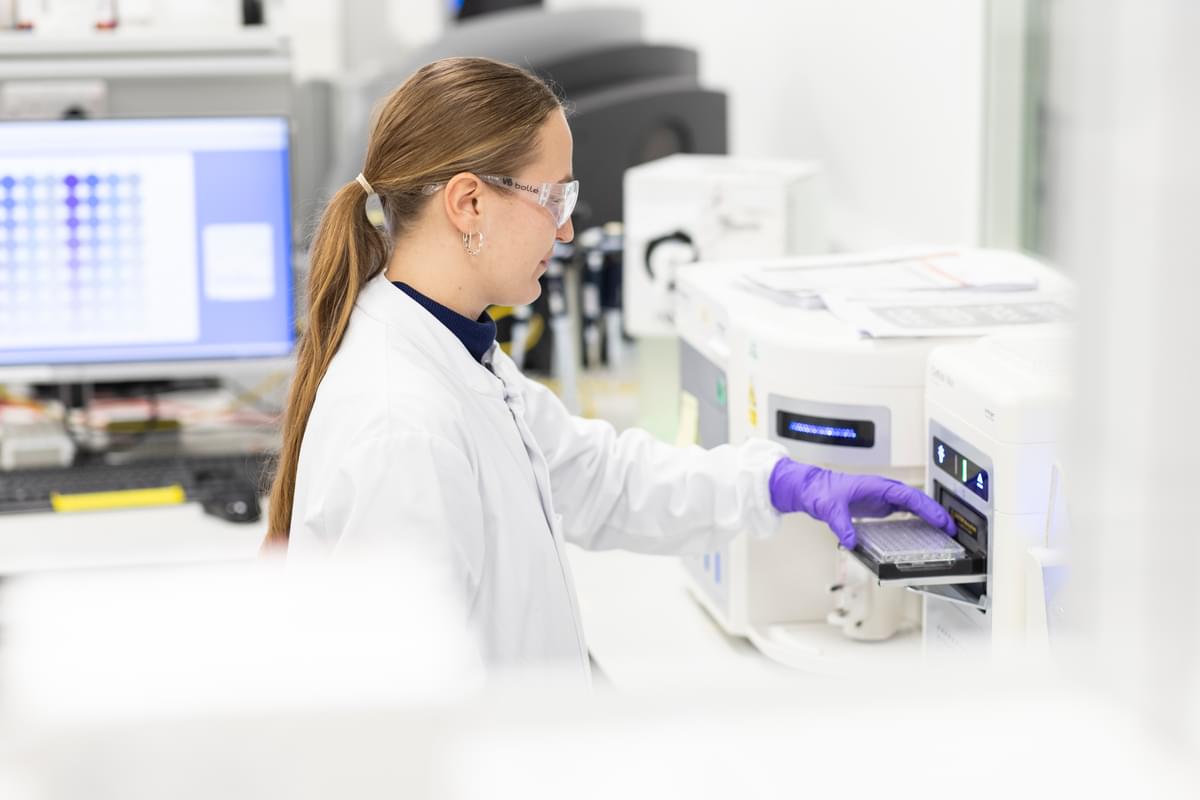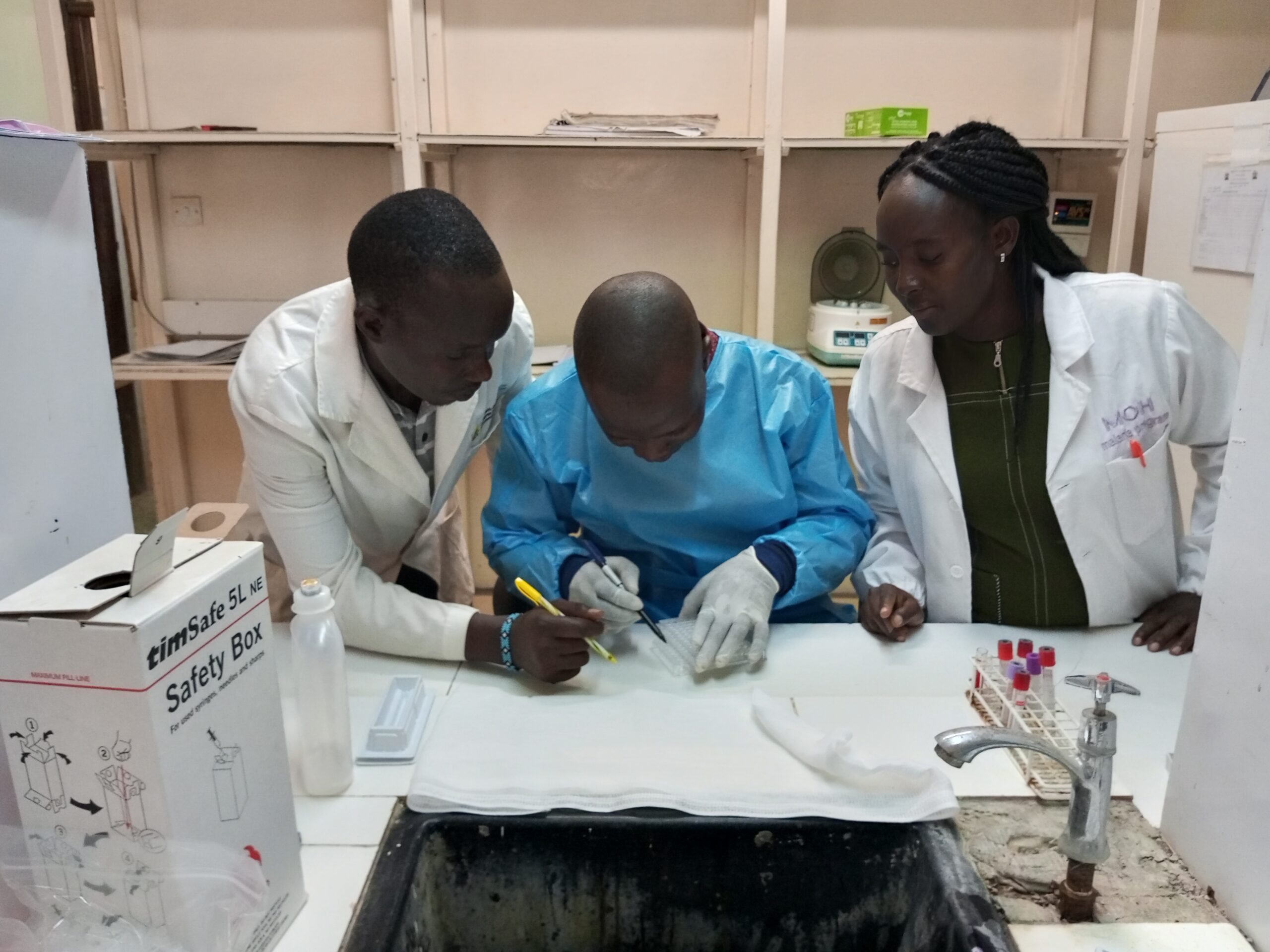LifeArc-CSO fund for Scottish translational researchers
In association with the Chief Scientist Office (CSO) for the Scottish Government, we support projects led by researchers in Scottish institutes or NHS institutions in Scotland that will accelerate the translation of strong discovery science.
The intention is that the funding will progress projects to a point where additional substantive funding could be secured.

Overview
The funded projects address a rare disease medical need and have a strong scientific rationale as well as a target-driven delivery plan. They are led by a salaried member of staff at a Scottish University or NHS Board and funding is capped at around £100,000 per project.
The funding supports researchers and clinicians in Scotland whose translational research brings together individuals with a range of expertise for development of an intervention. Details of the projects funded as part of the 2021 funding round can be found below.
Contact
If you have any questions about the scheme, please contact Dr Rachael Brooker, Senior Business Manager, at rachael.brooker@lifearc.org
Funded projects
Personalised treatment for pleural mesothelioma
Title: Personalised Treatment For Pleural Mesothelioma Patients By Taming The Hippo
Principal investigator: Carsten Hansen University of Edinburgh Centre for Inflammation Research/ The Institute for Regeneration and Repair
Co-applicants: Prof Neil Carragher, Prof Scott Webster.
Location: University of Edinburgh Centre for Inflammation Research/ The Institute for Regeneration and Repair
About the project:
Mesothelioma is an aggressive type of cancer that most commonly starts in the layers of tissue covering the lungs. It is usually linked to asbestos exposure. Sadly, it is very difficult to treat and more than half of patients will lose their lives within one year of diagnosis. There is an urgent need for effective new treatments that can help improve survival for people with the disease.
This research focuses on a key cellular communication cascade – the Hippo pathway – which controls many aspects of cell growth and development. In around four out of ten mesotheliomas, faults in components of this pathway are known to drive tumour growth and development. Developing drugs that can target this pathway could help to slow down or stop cancer cell growth, helping to improve outcomes in these patients.
Dr Carsten Hansen and his team have screened more than 83,000 compounds using patient mesothelioma cells, selecting a shortlist of candidates with encouraging activity against the Hippo pathway. The researchers will now carry out a series of laboratory tests to further evaluate each compound – to examine their activity, specificity, and safety profile. They hope their results will unlock new opportunities for the onward development of effective new personalised treatments for mesothelioma.
Therapies for motor neuron diseases
Title: Developing UBA1-targeted therapies for Motor Neuron Diseases efficiencies.
Principal investigator: Professor Tom Gillingwater (University of Edinburgh)
Co-applicants: Dr Helena Chaytow & Dr Kiterie Faller (University of Edinburgh)
Location: University of Edinburgh
Motor neuron disease (MND) describes a group of rare conditions which affect nerve cells that control muscle activity such as walking, breathing, speaking and swallowing. Over time, people with MND may lose their ability to walk or control other movements. Sadly, there is no cure – and new treatments are desperately needed to improve the outlook for people with these devastating illnesses.
Professor Gillingwater’s team is aiming to develop new drugs for treating certain types of MND: amyotrophic lateral sclerosis (ALS) that causes rapid loss of muscle control and eventual paralysis – and spinal muscular atrophy (SMA), a genetic disease that affects children. Their approach involves targeting an enzyme called UBA1, which they have previously shown to have considerable potential for treating these conditions.
In collaboration with Atomwise, the researchers have recently used artificial intelligence to identify around 70 potential drug compounds which are predicted to target UBA1. They will now carry out a series of laboratory experiments to evaluate their properties – with the future goal of taking one promising compound into clinical trials. They are partnering with the Euan MacDonald Centre for Motor Neuron Disease Research and the Anne Rowling Regenerative Neurology Clinic to secure a route to the clinic.
Duchenne muscular dystrophy
Title: Does anti-RANKL therapy prevent glucocorticoid induced bone loss and promote muscle function in a mouse model of Duchenne muscular dystrophy?
Principal investigator: Prof Colin Farquharson
Co-applicants: Prof Jérôme Frenette (Université Laval-Québec) and Dr Jarod Wong (Uni Glasgow) and Dr Shuko Joseph (Royal Hospital for Children Glasgow)
Location: University of Edinburgh
Duchenne muscular dystrophy (DMD) is a devastating genetic disease that affects 1 in 4,000 boys. A child with the condition will experience a deterioration of their physical abilities. Sadly, there is no cure and most lose their ability to walk between the ages of 10 to 14 years.
Treatment with steroids can help slow down muscle damage and weakness – keeping boys walking for around two to three years longer. But the long-term use of these medicines can cause unwanted side effects, including fragile bones (osteoporosis) – which increases the risk of fractures. Around one-half of all children with DMD lose the ability to walk after their first long-bone fracture. Spinal fractures are also common and can lead to ongoing back pain that affects their quality of life.
Currently, the only effective treatment for preventing bone fractures in children with DMD are drugs called bisphosphonates. But these medicines cause unpleasant side effects and also need to be given through a vein, which can be challenging in these boys. Recently, a new drug called denosumab – which is given as an injection – has been proven to be effective for adults with osteoporosis.
Professor Colin Farquharson and his team will perform a series of laboratory experiments to evaluate the potential of denosumab for preventing bone fractures in young people with DMD – and investigate the best strategies for using the drug in combination with steroids and bisphosphonates. Their results will set the stage for future clinical trials to evaluate whether this medicine can provide a safe, effective and convenient new treatment for children with the condition.
Contact us
In submitting your personal data via this form, you consent to being contacted via the details provided so that your enquiry can be responded to. If you would like your data to be removed, please email dataprivacy@lifearc.org.
Please see our Privacy Policy in relation to the personal data you submit to us through this page.
Latest news
-

LifeArc launches £40m research centres that will unlock new tests, treatments and cures for people living with rare diseases
Read more: LifeArc launches £40m research centres that will unlock new tests, treatments and cures for people living with rare diseases -

First-of-a-kind plan announced to get more children access to cutting-edge, proven gene therapy treatments for rare diseases
Read more: First-of-a-kind plan announced to get more children access to cutting-edge, proven gene therapy treatments for rare diseases -

New £6.2m partnership will help to eliminate a deadly disease affecting children and vulnerable people in Kenya
Read more: New £6.2m partnership will help to eliminate a deadly disease affecting children and vulnerable people in Kenya
